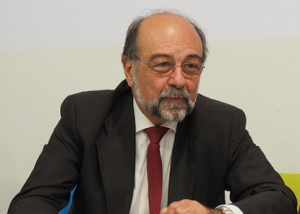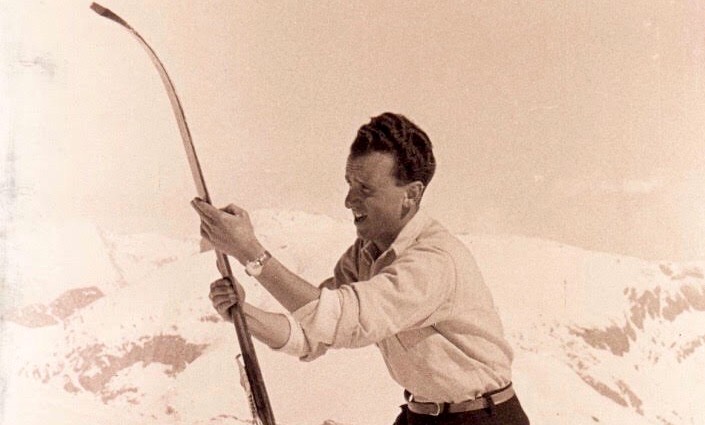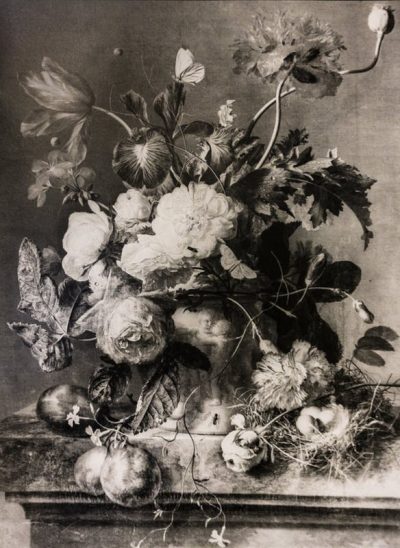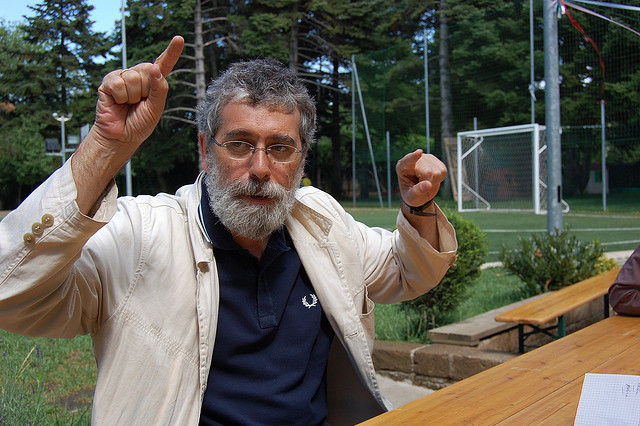Having trouble viewing this email? Click here


|
news Circumcision, Jewish Rules Example  By Giorgio Mortara* By Giorgio Mortara*Ritual circumcision is not a medical act because it has no therapeutic purpose but is an exclusively religious act. A religious act that however must follow the medical rules for safeguarding the health of the child. The problem we face is not exclusively scientific but ethical, legal, religious and cultural. In recent years there has been a growing tendency to consider this practice exclusively in the light of its possible attack on the physical integrity of children without dwelling on the profiles inherent in the right to religious freedom and on the possible inclusive value of its recognition for universal citizenship. Circumcising our children is one of the most significant symbols of our being Jews and protecting it is an act in defence of our religious freedom. Since ancient times in Judaism has been identified a person in charge of carrying out this act that must follow precise rules both religious and health so that circumcision can be deferred if there are signs or symptoms such as to discourage the execution. *Giorgio Mortara is a doctor and Vice-President of the Union of Italian Jewish Communities. |
|
obituarieS Enzo Cavaglion (1919-2019) 
By Pagine Ebraiche staff |
|
kultur «Deutschland soll das von den Nazis gestohlene Gemälde zurückgeben»  Pagine Ebraiche Staff Pagine Ebraiche Staff«Ein Aufruf an Deutschland für 2019: Wir wünschen, dass dieses Jahr die berühmte Vase mit Blumen des niederländischen Malers Jan van Huysum den Uffizien von Florenz zurückgegeben wird. Das Gemälde wurde während dem Zweiten Weltkrieg von den Nazis gestohlen und befindet sich gerade bei einer deutschen Familie, die es nach all dieser Zeit und trotz den zahlreichen Anfragen des italienischen Staats noch nicht dem Museum zurückgegeben hat» das ist der Aufruf vom Direktor des florentinischen Museums, dem deutschen Eike Schmidt. Dieses Bild ist ein Meisterwerk von Jan van Huysum (Amsterdam 1682-1749), einem sehr berühmten Maler von Stillleben. Es handelt sich um ein 47 x 35 cm großes Ölgemälde, das bereits vom Jahr 1824 zu den Kunstsammlungen von Pitti-Palast gehörte, als der Großherzog von Lothringen Leopold II. es für die neugegründete Galerie des Palatins kaufte. Das Museum berichtet, dass es für mehr als ein Jahrhundert im Saal der Putti samt anderen niederländischen Stillleben, wie den von Rachel Ruysch und Willem van Aelst, ausgestellt geblieben sei; im Jahr 1940 sei der Palast evakuiert worden und das Gemälde sei zur Villa der Familie Medici in Poggio a Caiano gebracht worden. 1943 sei es zur Villa Bossi Pucci verlegt worden, immer noch in Florenz, und da sei geblieben, solange deutsche Soldaten, die auf dem Rückzug gewesen seien, es zusammen mit anderen Werken nach Castel Giovio (Provinz Bozen) gebracht hätten. Die Kiste, wo Vase mit Blumen lag, sei geöffnet worden und das entwendete Bild sei nach Deutschland gebracht worden, wo man seine Spuren verloren habe. *Übersetzung von Anna Zanette mit der Hilfe von Giulia Schincariol, Studentinnen der Hochschule für Dolmetscher und Übersetzer der Universität von Triest und Praktikantinnen bei der Zeitungsredaktion der Union der jüdischen Gemeinden von Italien (UCEI). |
|
bechol
lashon - deutsch Kultur 
David Bidussa* |
pilpul Stubborn and Rebellious Rabbinical Hermeneutics 
By Yaakov Mascetti* |
|
ITALICS Reclaiming the Past  By Rob Streit* By Rob Streit*Ancestry and genealogy have seen a recent boom in popularity. With a host of services available to those wanting to trace their lineage, the curious can swab their mouths, send their DNA away and have the past illuminated in six to eight weeks. Matthew Larcinese of West Bloomfield has a different approach. Larcinese started Digging the Past Inc., a nonprofit that focuses on DNA and archival research to trace ancestry. The organization specifically looks at Y-DNA, which traces the paternal line. Coupled with archival materials such as wills and birth notices, Larcinese fleshes out a more complete picture of the past. Drinking with the locals is sometimes part of the process as well. “I have these stages to my research,” Larcinese says. “Archives, DNA and Guinness stout.” While researching his own family in Abruzzo, Italy, Larcinese made a surprising discovery. He found the last will and testament of an ancestor from 1580. The will indicated that the ancestor had significant wealth and owned a good deal of land. “We didn’t know why, and we didn’t know how. We weren’t noble or royalty or anything like that,” Larcinese says. Larcinese tested his own Y-DNA, which reveals common ancestors. He was then contacted by a DNA expert who told him about some of his forbearers. “When I got my Y-DNA done, my matches were all Jewish,” says Larcinese, who previously thought he had no blood connection to Jews. “I had no concept of what was going on.” *This article was published in the Detroit Jewish News on January 3, 2018. |
 |


This
newsletter is published under difficult conditions. The editors of this
newsletter are Italian journalists whose native language is Italian.
They are willing to offer their energy and their skills to give
international readers the opportunity of learning more about the
Italian Jewish world, its values, its culture and its traditions.
In spite of all our efforts to avoid this, readers may find an
occasional language mistake. We count on your understanding and on your
help and advice to correct these mistakes and improve our publication.
Pagine Ebraiche International Edition is published by the Union of
Italian Jewish Communities (UCEI). UCEI publications encourage an
understanding of the Jewish world and the debate within it. The
articles and opinions published by Pagine Ebraiche International
Edition, unless expressly stated otherwise, cannot be interpreted as
the official position of UCEI, but only as the self-expression of the
people who sign them, offering their comments to UCEI publications.
Readers who are interested in making their own contribution should
email us at desk@ucei.it
You received this newsletter because you authorized UCEI to contact
you. If you would like to remove your email address from our list, or
if you would like to subscribe using a new email address, please send a
blank email to desk@ucei.it
stating "unsubscribe" or "subscribe" in the subject field.
© UCEI - All rights reserved - The articles may only be reproduced
after obtaining the written permission of the editor-in-chief. Pagine
Ebraiche - Reg Rome Court 199/2009 – Editor in Chief: Guido Vitale.
Special thanks to: Francesco Moises Bassano, Susanna Barki, Amanda
Benjamin, Monica Bizzio, Angelica Edna Calò Livne, Eliezer Di Martino,
Alain Elkann, Dori Fleekop, Daniela Fubini, Benedetta Guetta, Sarah
Kaminski, Daniel Leisawitz, Annette Leckart, Gadi Luzzatto Voghera,
Yaakov Mascetti, Francesca Matalon, Jonathan Misrachi, Anna Momigliano,
Giovanni Montenero, Elèna Mortara, Sabina Muccigrosso, Lisa Palmieri
Billig, Jazmine Pignatello, Shirley Piperno, Giandomenico Pozzi, Daniel
Reichel, Colby Robbins, Danielle Rockman, Lindsay Shedlin,
Michael Sierra, Rachel Silvera, Adam Smulevich, Simone Somekh, Rossella
Tercatin, Ada Treves, Lauren Waldman, Sahar Zivan.
Questo notiziario è realizzato in condizioni di particolare difficoltà.
I redattori di questo notiziario sono giornalisti italiani di
madrelingua italiana. Mettono a disposizione le loro energie e le loro
competenze per raccontare in lingua inglese l'ebraismo italiano, i suoi
valori, la sua cultura e i suoi valori. Nonostante il nostro impegno il
lettore potrebbe trovare errori e imperfezioni nell'utilizzo del
linguaggio che faremo del nostro meglio per evitare. Contiamo sulla
vostra comprensione e soprattutto sul vostro aiuto e sul vostro
consiglio per correggere gli errori e migliorare.
Pagine Ebraiche International Edition è una pubblicazione edita
dall'Unione delle Comunità Ebraiche Italiane. L'UCEI sviluppa mezzi di
comunicazione che incoraggiano la conoscenza e il confronto delle
realtà ebraiche. Gli articoli e i commenti pubblicati, a meno che non
sia espressamente indicato il contrario, non possono essere intesi come
una presa di posizione ufficiale, ma solo come la autonoma espressione
delle persone che li firmano e che si sono rese gratuitamente
disponibili. Gli utenti che fossero interessati a offrire un proprio
contributo possono rivolgersi all'indirizzo desk@ucei.it
Avete ricevuto questo messaggio perché avete trasmesso a Ucei
l'autorizzazione a comunicare con voi. Se non desiderate ricevere
ulteriori comunicazioni o se volete comunicare un nuovo indirizzo
email, scrivete a: desk@ucei.it
indicando nell'oggetto del messaggio "cancella" o "modifica".
© UCEI - Tutti i diritti riservati - I testi possono essere riprodotti
solo dopo aver ottenuto l'autorizzazione scritta della Direzione.
Pagine Ebraiche International Edition - notiziario dell'ebraismo
italiano - Reg. Tribunale di Roma 199/2009 - direttore responsabile:
Guido Vitale.
Realizzato con il contributo di: Francesco Moises Bassano, Susanna
Barki, Amanda Benjamin, Monica Bizzio, Angelica Edna Calò Livne,
Eliezer Di Martino, Alain Elkann, Dori Fleekop, Daniela Fubini,
Benedetta Guetta, Sarah Kaminski, Daniel Leisawitz, Annette Leckart,
Gadi Luzzatto Voghera, Yaakov Mascetti, Francesca Matalon, Jonathan
Misrachi, Anna Momigliano, Giovanni Montenero, Elèna Mortara, Sabina
Muccigrosso, Lisa Palmieri Billig, Jazmine Pignatello, Shirley Piperno,
Giandomenico Pozzi, Daniel Reichel, Colby Robbins, Danielle
Rockman, Lindsay Shedlin, Michael Sierra, Rachel Silvera, Adam
Smulevich, Simone Somekh, Rossella Tercatin, Ada Treves, Lauren
Waldman, Sahar Zivan.